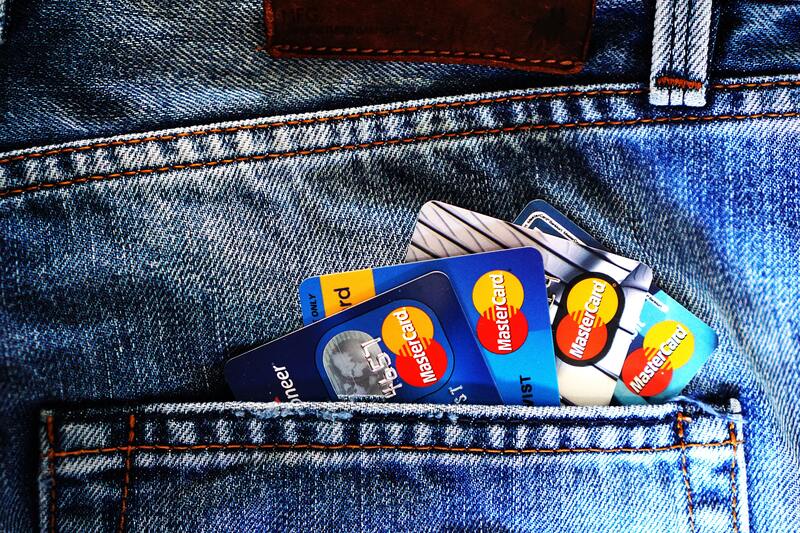Building a strong credit score is a crucial part of achieving financial stability and independence. A good credit score opens up opportunities for better interest rates on loans and credit cards, lower insurance premiums, and even job opportunities.
Unfortunately, many people struggle with building and maintaining a strong credit score, especially when starting from scratch.
That’s where this blog comes in. The purpose of this blog is to provide you with seven actionable tips for building a strong credit score from scratch.
From understanding credit utilization to avoiding common mistakes, this blog will provide you with the knowledge and tools you need to succeed.
What is a credit score, and why is it important?
A credit score is a three-digit number that represents an individual’s creditworthiness. It’s a numerical assessment of how likely a person is to repay their debts on time.
Lenders, banks, credit card companies, landlords, and even some employers use credit scores to evaluate an individual’s creditworthiness.
A credit score is important because it can impact many areas of an individual’s life. A good credit score makes it easier to get approved for loans, credit cards, and rental agreements. It also makes it easier to secure lower interest rates and better terms on loans and credit cards.
Conversely, a poor credit score can make it difficult to get approved for credit and may result in higher interest rates or even denial of credit. In some cases, it can also affect job prospects and insurance premiums.
Overall, having a good credit score is essential for financial stability and independence. It can help individuals achieve their financial goals, whether that’s buying a home, starting a business, or simply managing their finances effectively.

A good credit score makes it easier to get approved for loans, credit cards, and rental agreements. Photo by energepic.com
How is a credit score calculated?
Credit scores are calculated using complex algorithms that take into account many different factors.
While there are several different credit scoring models used by different credit bureaus and lenders, most credit scores are calculated based on the following factors:
Payment history
This is the most important factor in determining credit scores, accounting for up to 35% of the total score. It reflects whether an individual has made their credit card and loan payments on time or not.
Credit utilization
This factor accounts for up to 30% of the total score and reflects the amount of credit an individual has used compared to the total amount of credit available to them.
Length of credit history
This factor accounts for up to 15% of the total score and reflects the length of time an individual has been using credit.
Types of credit used
This factor accounts for up to 10% of the total score and reflects the different types of credit an individual has used, such as credit cards, loans, and mortgages.
New credit inquiries
This factor accounts for up to 10% of the total score and reflects the number of times an individual has recently applied for credit.
The exact formulas and weights of each factor can vary between credit bureaus and lenders, and they may use different scoring models.
It’s important to note that not all credit scores are created equal, and individuals should strive to maintain a good score across all credit bureaus and lenders.
What is considered a good credit score, and why?
A good credit score typically ranges from 670 to 739, while a very good credit score ranges from 740 to 799, and an excellent credit score is 800 or above. However, credit score ranges can vary slightly depending on the credit bureau or scoring model used.
A good credit score is important because it indicates that an individual is a low-risk borrower, which makes them more likely to be approved for credit and eligible for lower interest rates and better terms on loans and credit cards.
Lenders and creditors consider individuals with good credit scores to be responsible and reliable borrowers who are likely to repay their debts on time. As a result, they may be willing to offer more credit, higher credit limits, and lower interest rates.
Conversely, individuals with poor scores may have a harder time getting approved for credit or may be subject to higher interest rates and less favorable terms. They may also be more likely to be denied for credit altogether.
A good credit score is, therefore essential for financial stability and independence, and individuals should strive to maintain a good score by managing their credit responsibly.
How can I start building my credit score from scratch?
Building a credit score from scratch can seem like a daunting task, but it’s not impossible. Here are some tips to help you get started:
Get a secured credit card
A secured credit card is a type of credit card that requires a cash deposit as collateral. This deposit is used to secure the credit card, and the credit limit is usually equal to the deposit amount. Using a secured credit card responsibly can help you establish a positive credit history and boost your credit score.
Become an authorized user
If you have a friend or family member with good credit, you can ask to become an authorized user on their credit card account. This means you’ll have access to their credit card, and the activity on the account will be reported to the credit bureaus under your name as well. Just be sure to choose someone who uses credit responsibly.
Take out a credit builder loan
A credit builder loan is a type of loan that’s designed to help you build credit. With a credit builder loan, you make payments toward the loan, which are held in a savings account. Once you’ve paid off the loan, the money in the savings account is released to you, and you’ve established a positive credit history.
Make payments on time
Payment history is the most important factor in determining your credit score, so it’s crucial to make payments on time. This includes credit cards, loans, and other bills such as rent and utilities.
Keep credit utilization low
Credit utilization is the amount of credit you’re using compared to the total amount of credit available to you. Keeping your credit utilization low can help boost your credit score. Experts recommend keeping credit utilization below 30% of your available credit.
Monitor your credit score
Monitoring your credit score can help you keep track of your progress and identify any errors or fraudulent activity. You can get a free credit report once a year from each of the three major credit bureaus – Equifax, Experian, and TransUnion.

Keeping your credit utilization low is important for maintaining a good credit score. Photo by Anete Lusina
What are some common mistakes to avoid when building credit?
When building credit, there are some common mistakes that people often make, which can negatively impact their credit score. Here are some of the most common mistakes to avoid:
Making late payments
Payment history is the most important factor in determining your credit score. Late payments can have a significant negative impact on your score and stay on your credit report for up to seven years.
Maxing out credit cards
Keeping your credit utilization low is important for maintaining a good credit score. Maxing out your credit cards can significantly increase your credit utilization, which can negatively impact your score.
Applying for too much credit
Applying for too much credit in a short amount of time can signal to lenders that you’re in financial distress and may negatively impact your credit score.
Closing credit accounts
Closing credit accounts can decrease the total amount of credit available to you, which can increase your credit utilization and negatively impact your credit score.
Co-signing for someone else’s debt
Co-signing for someone else’s debt can put your own credit score at risk if they don’t make payments on time.
Ignoring your credit report
Your credit report contains important information about your credit history, including any errors or fraudulent activity. Ignoring your credit report can result in missed opportunities to correct errors or identify fraudulent activity.
How long does it take to establish a good credit score?
The time it takes to establish a good score can vary depending on several factors, including how you use credit, how often you make payments on time, and how much credit you have available. Generally, it takes about six months to establish a credit history, and about a year to establish a credit score.
Once you’ve established a credit history, it can take several more months or even years to build a good credit score.
However, the specific amount of time it takes can vary depending on your individual circumstances.
If you’re just starting to build credit, it’s important to be patient and use credit responsibly.
Make payments on time, keep credit utilization low, and avoid common mistakes like maxing out credit cards or applying for too much credit at once. Over time, these habits will help you establish and maintain a good score.
It’s also important to note that even if you have a less-than-perfect credit score, you can still take steps to improve it.
Can I build credit without a credit card?
Yes, it’s possible to build credit without a credit card. While credit cards are a common way to build credit, there are other methods that can also help you establish a positive credit history.
One way to build credit without a credit card is to become an authorized user on someone else’s credit card account. This means that you’ll have access to their credit card, and the activity on the account will be reported to the credit bureaus under your name as well. Just be sure to choose someone who uses credit responsibly.
Another option is to take out a credit builder loan. A credit builder loan is a type of loan that’s designed to help you build credit. With a credit builder loan, you make payments toward the loan, which are held in a savings account. Once you’ve paid off the loan, the money in the savings account is released to you, and you’ve established a positive credit history.
Rent payments can also help build credit. Some credit bureaus and scoring models include rent payments in their score calculations. There are also rent-reporting services that can report your rent payments to the credit bureaus.
How does credit utilization affect my credit score?
Credit utilization is the amount of credit you’re using compared to the total amount of credit available to you. It’s an important factor in determining your credit score because it reflects how much of your available credit you’re using.
Using a high percentage of your available credit can negatively impact your score, while using a low percentage can help boost your credit score. This is because lenders and credit bureaus view a high credit utilization ratio as a sign that you may be relying too heavily on credit and may be at risk of defaulting on your payments.
Experts generally recommend keeping your credit utilization below 30% of your available credit. For example, if you have a credit card with a $10,000 limit, you should aim to keep your balance below $3,000 to maintain a healthy credit utilization ratio.
Lowering your credit utilization ratio can have a positive impact on your credit score. If you have a high credit utilization ratio, you can work to pay down your balances or request a credit limit increase to lower your ratio.
However, it’s important to avoid opening new accounts or closing existing accounts, as this can also impact your credit utilization ratio and potentially lower your score.

Maintaining a good credit score over time requires consistent effort and responsible use of credit. Photo by Lukas
How often should I check my credit score?
It’s generally a good idea to check your credit score at least once a year. You can request a free credit report from each of the three major credit bureaus – Equifax, Experian, and TransUnion – once a year, which allows you to review your credit report and check for any errors or fraudulent activity.
In addition to checking your score annually, you may also want to check it more frequently if you’re actively working to improve your credit or if you suspect that your identity has been compromised.
You can check your credit score for free using a variety of online tools and services, or by signing up for credit monitoring services that notify you of any changes to your credit report or score.
It’s important to note that checking your own score does not impact your credit score, so there’s no harm in checking it regularly.
In fact, monitoring your credit score can help you identify potential issues early on and take steps to address them before they have a negative impact on your credit.
What are the strategies for maintaining a good credit score over time?
Maintaining a good score over time requires consistent effort and responsible use of credit. Here are the top strategies for maintaining a good credit score:
Make payments on time
Payment history is the most important factor in determining your credit score. To maintain a good credit score, it’s crucial to make payments on time for all credit cards, loans, and bills.
Keep credit utilization low
Credit utilization is the amount of credit you’re using compared to the total amount of credit available to you. To maintain a good score, keep your credit utilization ratio below 30% of your available credit.
Use credit cards responsibly
Using credit cards responsibly means paying off the balance in full each month and avoiding maxing out credit cards.
Monitor your credit report
Reviewing your credit report regularly can help you identify errors or fraudulent activity. You can request a free credit report from each of the three major credit bureaus once a year.
Limit new credit applications
Applying for too much credit at once can negatively impact your credit score. Limit new credit applications and only apply for credit when necessary.
Keep old credit accounts open
The length of your credit history is an important factor in determining your credit score. Keeping old credit accounts open can help boost your score by demonstrating a longer credit history.
Avoid co-signing for loans
Co-signing for someone else’s debt can put your own credit score at risk if they don’t make payments on time. Avoid co-signing for loans if possible.

No responses yet